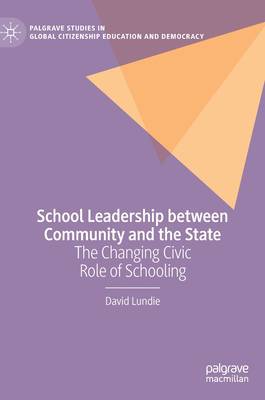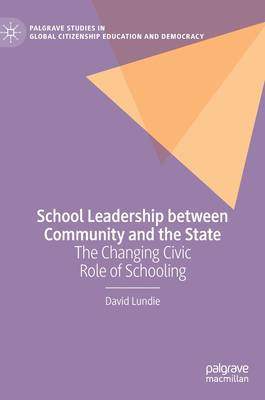
Door een staking bij bpost kan je online bestelling op dit moment iets langer onderweg zijn dan voorzien. Dringend iets nodig? Onze winkels ontvangen jou met open armen!
- Afhalen na 1 uur in een winkel met voorraad
- Gratis thuislevering in België vanaf € 30
- Ruim aanbod met 7 miljoen producten
Door een staking bij bpost kan je online bestelling op dit moment iets langer onderweg zijn dan voorzien. Dringend iets nodig? Onze winkels ontvangen jou met open armen!
- Afhalen na 1 uur in een winkel met voorraad
- Gratis thuislevering in België vanaf € 30
- Ruim aanbod met 7 miljoen producten
Zoeken
€ 105,45
+ 210 punten
Uitvoering
Omschrijving
This book presents changes in UK and global educational governance in the context of a radical shift in the operating logics of politics and its interaction with education. Beginning from the colonial origins of political interest in education, the author traces a fundamental shift in the patterns of governance of schools in England in the opening decades of the 21st century. Operating through the logics of public choice economics involving both real markets and quasi-markets, policy reforms have increasingly framed school values, and the value of schooling, in line with a politically determined and nostalgic discourse of 'British values'. This stands in contrast to a previous focus on 'community cohesion' which foregrounded school partnership with the parent community and wider society. Tracing the processes and mid-level actors mediating between government and school leaders, the author identifies processes of recontextualisation through which policy can be reinscribed and resisted.
Specificaties
Betrokkenen
- Auteur(s):
- Uitgeverij:
Inhoud
- Aantal bladzijden:
- 306
- Taal:
- Engels
- Reeks:
Eigenschappen
- Productcode (EAN):
- 9783030998332
- Verschijningsdatum:
- 9/09/2022
- Uitvoering:
- Hardcover
- Formaat:
- Genaaid
- Afmetingen:
- 148 mm x 210 mm
- Gewicht:
- 553 g

Alleen bij Standaard Boekhandel
+ 210 punten op je klantenkaart van Standaard Boekhandel
Beoordelingen
We publiceren alleen reviews die voldoen aan de voorwaarden voor reviews. Bekijk onze voorwaarden voor reviews.











